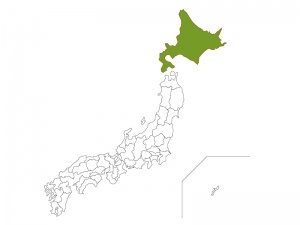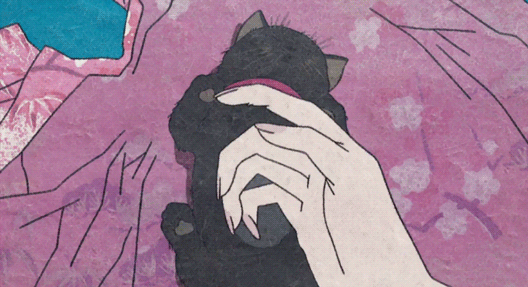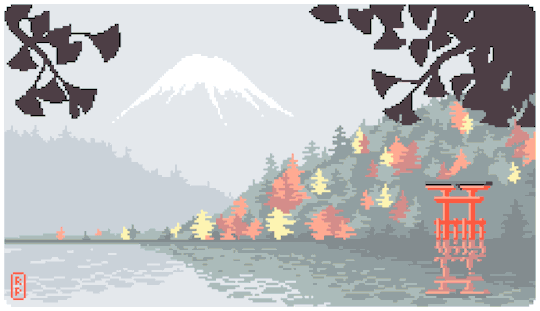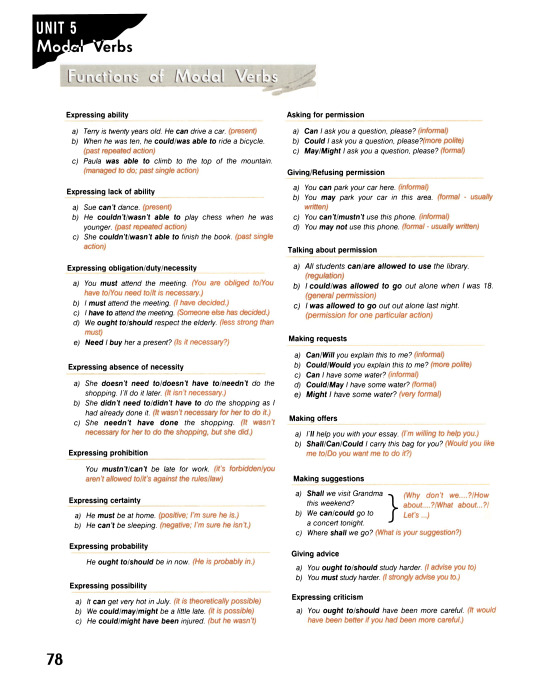Text
うるさいうるさい
都合のいいことは聞こえません( ◠‿◠ )
自分が悪いと思いません〜( ◠‿◠ )
まだ、自己中なので。
そんなことより、激務すぎて最近苦しい
きついというより苦しいな、
精神的にも身体的にも頭脳的にも。
ずーーーーっと、追い詰められてる
はあ〜あ、今日も一日がんばった
19 notes
·
View notes
Text
POST PLUS IS COMING, WHETHER YOU WANT IT OR NOT!
Despite the fancy survey, changes to the UI and TOS reveal we’re getting the service in the future whether we want it or not. Obviously, Post+ is a terrible idea that is trying to bank revenue on user content. Unlike patreon or onlyfans, tumblr’s primary focus is on FAN content. The legality of this is NOT in the users favor and as the new tumblr TOS states, said users will be entirely liable for whatever legal matters arise.
SO WHAT ARE WE DOING?
Besides filling out the survey, it’s time to show tumblr we mean business and show our displeasure by hitting them where it hurts.
Ad revenue.
We’re proposing a 24 hour log off as phase one of this protest.
WHEN IS THE PROTEST?
AUGUST 6th, 2021
12 am Eastern Time (US)
5 am Greenwich Mean Time
6 am Central European Time
8 am Moscow Standard Time
1 pm Australian Western Time
2 pm Japan Standard Time
3:30 pm Australian Central Time
4 pm Australian Eastern Time
AUGUST 5th, 2021
11 pm Mountain Time (US)
9 pm Pacific Time (US)
THE END TIME IS 24 HOURS FROM START TIME!!!
So no posting, no queues, no likes, and no reblogs!
WHAT IF I CAN’T/WHAT ELSE CAN I DO?
Like this post and share it AS MANY TIMES AS POSSIBLE. Use the hashtags #tumblrlogoff2021 or #postplusprotest on ANY and ALL social media.
WILL THIS WORK?
Maybe, maybe not. It’s an attempt at doing SOMETHING.
101K notes
·
View notes
Text
the pure adrenaline of changing your phone's language to your target one. am i about to click in accept, decline or block? we'll never know unless i stop being lazy and google all these words
0 notes
Text
Ethnic Cleansing of Palestine vocabulary in Japanese

パレスチナ - Palestine
ヨルダン川西岸地区 [ヨルダンがわせいがんちく] - West Bank
ガザ地区 [ガザちく] - Gaza Strip
中東 [ちゅうとう] - Middle East
占領されたエルサレム [せんりょうされた エルサレム] - occupied Jerusalem
シェイク・ジャラー - Sheikh Jarrah
アル=アクサー・モスク - Al-Aqsa Mosque
ガザ - Gaza
パレスチナ人 [パレスチナじん] - Palestinian
武装していない [ぶそうしていない] - unarmed
民間人 [みんかんじん] - civilian
被害者 [ひがいしゃ] - victim
難民 [なんみん] - refugee
イスラエル - Israel
イスラエル人 [イスラエルじん] - Israeli
シオニズム - Zionism
軍隊 [ぐんたい] - military, troops, armed forces
兵士 [へいし] - soldier
テロリスト - terrorist
アメリカの支援を受ける [アメリカの しえんを うける] - backed by the United States
軍事占領 [ぐんじせんりょう] - military occupation
追放 [ついほう] - eviction
強制退去 [きょうせいたいきょ] - forced displacement
暴力 [ぼうりょく] - violence
人種隔離 [じんしゅかくり] - apartheid, segregation
民族浄化 [みんぞくじょうか] - ethnic cleansing
ジェノサイド - genocide
虐殺 [ぎゃくさつ] - slaughter, massacre
植民地化 [しょくみんちか] - colonization
検閲 [けんえつ] - censorship
封鎖 [ふうさ] - blockade
プロパガンダ - propaganda
戦争犯罪 [せんそうはんざい] - war crime
人道に対する罪 [じんどうにたいするつみ] - crime against humanity
催涙ガス [さいるいガス] - teargas
スタン擲弾 [スタンてきだん] - stun grenade
ゴム弾 [ゴムだん] - rubber bullet
ロケット弾 [ロケットだん] - rocket
空爆 [くうばく] - airstrike
弾圧する [だんあつする] - to oppress
征服する [せいふくする] - to subjugate
追放する [ついほうする] - to evict
占領する [せんりょうする] - to occupy, to take possession of
逮捕する [たいほする] - to arrest
襲撃する [しゅうげきする] - to attack; to raid
襲う [おそう] - to attack
暴行する [ぼうこうする] - to assault, to abuse
殴る [なぐる] - to beat
拷問する [ごうもんする] - to torture
撃つ [うつ] - to shoot
射殺する [しゃさつする] - to shoot (to death)
殺害する [さつがいする] - to kill, to murder
虐殺する [ぎゃくさつする] - to slaughter
破壊する [はかいする] - to destroy
爆撃する [ばくげきする] - to shell, to bomb
破壊 [はかい] - destruction
憎悪 [ぞうお] - hatred
恐怖 [きょうふ] - fear
不法な [ふほうな] - illegal
35 notes
·
View notes
Link
Last time, you learned how the causative form works like 子供に勉強をさせる ([I] will make my child study). In passive and causative sentences, you have to pay attention to people’s positions such as doers and direction-givers. In this lesson, you will tackle one of the concepts unique to Japanese: receiving and giving. This is also involved with people’s positions.
33 notes
·
View notes
Text
Moderately Interesting Japanese Ep. 8 Hokkaido Dialect

The typical winter scenery of Hokkaido.
One of my favorite aspects of language learning is studying dialects. I am fascinated by how language branches and adapts to new environments like some form of linguistic natural selection. Japanese is rife with interesting dialects, some of which are so different from the standard that they can sound like a totally different language to the untrained ear. I thought I’d make a series of posts highlighting different dialects in Japanese. Since this sort of post will take a bit more research on my end and I plan to find native speakers of the dialect to confirm with, they won’t be very regular, but I hope that you enjoy them!
What are some of the main Japanese dialects?
Firstly, let me tell you how to say “dialect” in Japanese, because I know I’m gonna use it and I don’t want to cause any confusion.
方言 (hougen)
Dialect
___弁 (__-ben)
__ Dialect, so “Osaka Dialect” is “Osaka-ben.”
I daresay that just about 100% of all Japanese learners are familiar with Tokyo-ben, because it is Standard Japanese. The next most popular dialect is Kansai-ben, which is spoken in the Kansai region (Osaka, Hiroshima, etc.). The Kansai Dialect can be broken down into several smaller, regional dialects. Next would probably be Okinawa-ben.
(Caution! Some people, particularly Okinawans, consider Okinawan Japanese to be a language independent from Japanese, and they can be offended if you refer to it as a dialect. Japan’s official stance is that Okinawan is a dialect, though, so I am calling it a dialect in my posts.)
Now without further ado, let’s actually start learning about one of these dialects!
Hokkaido-ben, namara ii!

Hokkaido is the island in green. It’s the biggest prefecture in Japan by far.
I am a foreigner and Japanese is not my native language, but I have been living on the island of Hokkaido for 5 years now and am very comfortable with the Hokkaido dialect, so I chose to introduce it to you first. Also, it’s not one that gets talked about a lot, so I figured maybe there weren’t many posts about it.
Hokkaido is the northernmost island of Japan, and it wasn’t settled and officially incorporated as part of Japan until the late 1800′s. There is a group of indigenous people here called the Ainu who speak a language completely different from Japanese, but their language has not bled into Hokkaido-ben. (Many place names in Hokkaido are from Ainu, though).
Because Hokkaido was settled so late in history compared to the other islands of Japan, their dialect doesn’t differ drastically from Tokyo-ben. There are some minor intonation differences that, frankly, I don’t feel confident explaining. I have internalized the intonations through exposure, but I’ve never been taught it and don’t really know what is correct. So I’m not going to talk about tonal differences, and instead focus on the different words and a wee bit of grammar.

投げる Nageru
Standard Japanese: 捨てる suteru
English: to dispose of (lit. “to throw/toss”)
To an English speaker, “throw away” feels just as natural as “dispose of.” But to people outside of Hokkaido, it sounds very unusual and the image it conjures is comedic, like someone is hurling trash into the garbage can like it’s the opening pitch at the World Series.
Example: そこの古い新聞を投げていいよ。
Romaji: Soko no furui shinbun wo nagete ii yo.
Standard: そこの古い新聞を捨てていいよ。
Romaji: Soko no furui shinbun wo sutete ii yo.
English: You can throw away those old newspapers there.

おっかない Okkanai
Standard: 危ない abunai
English: dangerous, scary, a “close call”
My hostmom uses this with me, like, all the time. According to her, I’m always doing okkanai things, like walking alone at night or *gasp* going outside with wet hair. I love her so much haha.
Example: うちの子が熊のぬいぐるみだと思って遊んでいたのは本当の子グマだった。おっかなかったわ!
Romaji: Uchi no ko ga kuma no nuigurumi da to omotte asonde ita noha hontou no koguma datta. Okkanakatta wa!
Standard: うちの子が熊のぬいぐるみだと思って遊んでいたのは本当の子グマだった。危なかったわ!
Romaji: Uchi no ko ga kuma no nuigurumi da to omotte asonde ita noha hontou no koguma datta. Abunakatta wa!
English: Our kid thought he was playing with a teddy bear, but it was actually a live bear cub. What a close call!

(手袋を)履く (Tebukuro wo) haku
Standard:(手袋を)はめる (tebukuro wo) hameru
English: to put on (gloves)
Winter in Hokkaido is long and cold. Gloves are one of the most essential articles of clothing here, and I have heard/used “haku” so much that “hameru” sounds incorrect to me. The “haku” sounds funny to other Japanese people because it is used for putting on socks, underwear, and pants, and they will imagine you putting socks or panties on your hands instead of gloves.
Example: 外は寒いから、手袋を履きなさい。
Romaji: Soto ha samui kara, tebukuro wo hakinasai.
Standard: 外は寒いから、手袋をはめなさい。
Romaji: Soto ha samui kara, tebukuro wo hamenasai.
English: It’s cold out, so put on your gloves.

めんこい Menkoi
Standard Japanese: 可愛い kawaii
English: cute
I included this because it’s one of the famous aspects of Hokkaido-ben, but I actually don’t hear it used that much. I tend to see it on souvenir shirts for tourists more than in actual conversations.
Example: この子猫はめっちゃめんこい!
Romaji: Kono koneko ha meccha menkoi!
Standard: この子猫はめっちゃかわいい!
Romaji: Kono koneko ha meccha kawaii!
English: This kitten is super cute!
Note: Even though it is functioning as an adjective and ends with an “i,” it is not an “i” adjective. It is a “na” adjective.

あずましくない Azumashikunai
Standard: 居心地が悪い、嫌 igokochi ga warui, iya
English: uncomfortable (surroundings), unpleasant
This is a word that many Hokkaido people use but struggle to explain. Azumashikunai describes any place that you find unpleasant or uncomfortable, maybe due to it being too crowded, or too empty, or because it’s very cramped, for example.
Example: 日曜日の札幌駅が人混みであずましくない。
Romaji. Nichiyoubi no Sapporo-eki ga hitogomi de azumashikunai.
Standard: 日曜日の札幌駅が人混みで嫌だ。
Romaji: Nichiyoubi no Sapporo-eki ga hitogomi de iya da.
English: Sapporo Station is always crowded on Sundays and I don’t like it.

いずい Izui
Standard: none
English: different (in a bad way), off-kilter, something is “off”
Hokkaido people really struggle to explain izui because Standard Japanese doesn’t have an equivalent for it, but I think it can be likened to “off” in English. You got something in your eye but can’t find it and your eye feels funny? Your eye is izui. You have a hair in your shirt and can’t find it? That feels izui. Sometimes it can be a mysterious ache not painful enough to warrant a visit to the doctor, or sometimes it can just be a sense that something is “off.”
Example: 目にゴミが入って、いずい。
Romaji: Me ni gomi ga haitte, izui.
Standard:目にゴミが入って、痛い。
Romaji: Me ni gomi ga haitte, itai.
English: Something got in my eye and now it feels off.

汽車 Kisha
Standard: 電車 densha
English: (train, lit. “steam engine”)
The first time I came to Japan, I could just barely hold down an everyday conversation in Japanese. My hostparents (hostdad especially) both spoke very strong Hokkaido-ben, and during my first meal with them my hostdad asked if I had traveled from the airport to their city by “steam engine,” and I was just baffled. Wait, did he just say locomotive? What year is it? Are steam engines still a thing in Japan?! Then my kind hostmother explained that he meant regular, modern trains.
Example: すみません、函館ゆきの汽車はいつ出発しますか?
Romaji: Sumimasen, Hakodate-yuki no kisha ha itsu shuppatsu shimasu ka?
Standard: すみません、函館ゆきの電車はいつ出発しますか?
Romaji: Sumimsaen, Hakodate-yuki no densha ha itsu shuppatsu shimasuka?
English: Excuse me, when does the train bound for Hakodate leave the station?

しゃっこい Shakkoi
Standard: 冷たい Tsumetai
English: Cold
Being the northernmost prefecture and next door to Russia, it’s only natural that Hokkaido-ben have its own word for “cold.”
Example: このかき氷ってめっちゃしゃっこい!
Romaji; Kono kakigoori tte meccha shakkoi!
Standard: このかき氷ってめっちゃ冷たい!
Romaji: Kono kakigoori tte meccha tsumetai!
English: This shaved ice is super cold!

とうきび Toukibi
Standard: とうもろこし Toumorokoshi
English: corn
Hokkaido is famous for their sweet corn, and “toukibi” is a word you will hear a lot here as a result. A popular summer snack is corn on the cob with soy sauce and butter, and it’s made just like in the gif above! Japanese people tend to eat it using a toothpick, picking off kernel by kernel. So when I just rocked up, grabbed an ear and started going to town on it, they thought I was a barbarian hahaha.
Example: やっぱり、とうきびに醤油だね!
Romaji: Yappari, toukibi ni shouyu da ne!
Standard: やっぱり、とうもろこしに醤油だね!
Romaji: Yappri, toumorokoshi ni shouyu da ne!
English: Soy sauce really does go good with corn!

なまら Namara
Standard: とても totemo、結構 kekkou
English: very, super, rather
This word is like “menkoi,” in that it is famous throughout Japan for being Hokkaido-ben, but I rarely hear it in actual conversations. I hear people use it when they are surprised by something. “Namara oishii” has a nuance of “It’s (actually) very tasty.”
Example: 曇ってるけど、今日の天気はなまらいい。
Romaji: Kumotteru kedo, kyou no tenki ha namara ii.
Standard: 曇ってるけど、今日の天気はけっこういい。
Romaji: Kumotteru kedo, kyou no tenki ha kekkou ii.
English: It’s cloudy today, but it’s still pretty good weather.

なんぼ? Nanbo?
Standard: いくら? Ikura?
English: How much?
My friend asked me to go get a couple drinks from the convenience store. I came back with a bottle for her and for me and she asked, “Nanbo datta?” I thought that bo was maybe a counter for things, and desperately tried to figure out what we were supposed to be counting. Then she explained that, for whatever reason, “nanbo” means “how much (does something cost)?”
Example: そのお弁当はめっちゃ美味しそう!なんぼだった?
Romaji: Sono obentou ha meccha oishisou! Nanbo datta?
Standard: そのお弁当はめっちゃ美味しそう!いくらだった?
Romaji: Sono obentou ha meccha oishisou! Ikura datta?
English: That bento looks super good! How much was it?

ボケる Bokeru (for produce)
Standard: 腐る kusaru
English: go bad (produce)
In standard Japanese, “bokeru” means “to go senile” or “to develop dementia/Alzheimer’s.” While I wouldn’t say it’s a slur bad enough that it would be bleeped out, it certainly isn’t a kind way to refer to aging.
So when my host mom told me, “I would give you some apples, but they’re all senile” I had no clue what she was going on about. But then she showed them to me, and they were all wrinkled like this:

Not exactly the most appetizing, but also not entirely rotten. I’m really not sure why Hokkaido-ben likens produce to senility, but if I had to guess, I’d say it’s because pretty much every single person with Alzheimer’s/dementia is wrinkled.
Example: このリンゴはボケてるから、パイでも作ろうか…
Romaji: Kono ringo ha boketeru kara, pai demo tsukurou ka…
Standard: このリンゴは腐りかけてるから、パイでも作ろうか…
Romaji: Kono ringo ha kusarikaketeru kara, pai demo tsukurou ka…
English: These apples are about to go bad, so I guess I’ll make a pie…

~べ ~be
Standard ~だろう、~でしょう darou, deshou
English: …, right?
This is probably the most famous aspect of Hokkaido-ben. Japanese people get a real kick out of it when this white girl uses it haha. “~be” is a sentence-ending particle that functions about the same as “darou” or “deshou” in that it:
asserts the speaker’s confidence in the likelihood of something
asks for the listener’s confirmation
This sentence-final particle has its roots in the particle ~べし (~beshi) found in Classical Japanese, which had a similar purpose. Other forms of ~beshi survive in Modern Standard Japanese with the words べき (beki) and すべく (subeku).
Here are two examples, one for each function ~be fulfills.
Example 1: 君の飛行機はあと5分に出発するって?間に合わないべ!
Romaji: Kimi no hikouki ha ato 5 fun ni shuppatsu suru tte? Maniawanai be!
Standard: 君の飛行機はあと5分に出発するって?間に合わないでしょう!
Romaji: Kimi no hikouki ha ato 5 fun ni shuppatsu suru tte? Maniawanai deshou!
English: You said your plane takes off in 5 minutes? There’s no way you’ll make it!
Example 2: このサラダに白菜も入ってたべ?
Romaji: Kono sarada ni hakusai mo haitteta be?
Standard: このサラダに白菜も入ってたでしょう?
Romaji: Kono sarada ni hakusai mo haitteta deshou?
Standard: There was napa cabbage in this salad too, wasn’t there?

~れ ~re
Standard: ~なさい ~nasai
English: imperative command
I really don’t like giving grammar explanations because it’s been a long time since I’ve formally studied Japanese grammar and I’m scared of explaining something poorly or incorrectly. But an upper-elementary level Japanese learner should know that there are many different levels of imperatives in Japanese that vary in politeness. In order of rude to polite, we have:
Imperatives that end in an “e” sound or ろ, as in:
死ね!Shine! Die!
待て!Mate! Wait!
食べろ!Tabero! Eat!
Imperatives that end in tte, te, or de and are not followed by kudasai
死んで Shinde. Die.
待って Matte. Wait.
食べて Tabete. Tabete.
Imperatives that end in nasai. (These are most often used by parents/teachers to their children.)
死になさい Shininasai. Die.
待ちなさい Machinasai. Wait.
食べなさい Tabenasai. Eat.
Imperatives that end in tte, te, or de and have kudasai after them.
And then there’s super formal Japanese, but that’s a whole other kettle of fish.
Anyways. Back to the Hokkaido-ben. I went to a picnic here with a Japanese friend’s family, and her aunt gave me a plate of food and said, “Tabere!” I knew that this had to be an imperative, but I had never studied it before. It felt like it was the same as the rudest imperative, and I spent the whole rest of the picnic wondering what on earth I had done to have her family speak to me like that. Conventionally, they should have been using the -tte form or -nasai form with me.
After the party, I asked her, “Dude, what’s the ~re stuff for? Do they not like me?” I was close to tears I was so hurt and confused.
And that when she laughed and explained that the ~re is a facet of Hokkaido-ben, and it is the same in politeness and nuance as the ~nasai imperative used by parents and teachers to their children.
So I had spent several hours thinking that her family hated me, when really they were treating me like I was their own child!
Example: ちゃんと野菜を食べれ!
Romaji: Chanto yasai wo tabere!
Standard: ちゃんと野菜を食べなさい!
Romaji: Chanto yasai wo tabenasai!
English: Eat all of your vegetables properly.
The End!
This was a monster of a post. There are actually a few more words I wanted to introduce, but I had to cut it off at some point haha. I hope that you enjoyed this segment of Moderately Interesting Japanese. I plan to make more on the other dialects within Japanese, but they will take a considerable amount of time so they won’t be very often.
Thanks for reading!
3K notes
·
View notes
Photo

Picture you can actually hear! Levi in the new season tho… I’m speechless.
~まま grammar and lots of examples of it being annoying beyond belief!
This one is LOOONG, like… not PhD long so don’t worry. There are cool gifs and lots of examples too!
クソ このままじゃ部下もエレンもヒストリアも失う
Levi to himself in episode 2 (39) season 3. The legendary chase scene with Kenny. Levi just “entered” that drinking establishment and said:
Shit. If it goes on like this, we’ll lose men, Eren, and Historia too.
部下 ぶか subordinates (men)
失う しなう to lose (people) (to lose a thing is 無くす なくす)
Note: The English translation is a conditional sentence. Where is ~たら、~なら、~ば、~と in Japanese? It’s well hidden! オイ!出てこい!
このままじゃ = If it goes on like this
じゃ (colloquial style) ・では (formal style)
(however, some people say that this little じゃ means だと/ だとしたら and that’s where the conditional meaning is hidden; I likeでは more because it perfectly goes in line with today’s grammar)
で refers to states (more here)
Conditional sentences are here
But today’s grammar is ~まま. I already made a short post about it. Check it out too! Such a short phrase, but it gave me so many headaches in the past!
When I asked Japanese people what it meant, they always said: “as it is.” Well, sounds simple, but that’s only one way to think about it. In the above example, “as it is, we’ll lose…” would sound awkward to say the least. So what does it really convey?
~まま
There’s no 1:1 translation. It’s better to learn it as a concept conveying:
States that can stay unchanged; remain in the same condition/state; e.g. I’m sitting and there’s no need to stand up. I can stay sited. I don’t need to change my state from sitting to standing.
If something hasn’t changed for a while, we can use this structure as well; e.g. She has been like this since yesterday (like this – in a certain state; it’s not the same as ‘it is similar to’).
You can also use it to express your current state/condition; e.g. I’m weak. My current state/condition is being weak.
Like this/that = doing things in a certain manner.
At this rate = used for saying what will happen if the present situation continues.
Note: the English examples are supposed to give you an idea how to think about ~まま. It would be so much easier if ~まま = as it is in every example, but depending on what sounds natural in English, this structure will take many forms.
That’s basically it. So, what is Levi really saying?
この refers to Kenny killing Levi’s people and basically f*cking his shit up.
まま refers to the fact that Kenny has been killing them for a good amount of time and that hasn’t changed from the start of the episode until the moment Levi uttered the sentence.
このままじゃ = If the state of Kenny killing my people will continue…
In the post with Akaza and Rengoku
死んでくれ、Kyojuro、若くて強いまま
Akaza is actually asking Rengoku to die while his state is being young and strong or to die to remain his state as young and strong.
Grammar mechanics:
It’s a noun so add だ・です at the end of your sentence
noun + の + まま
adjective + まま (don’t remove な from な-adj or い from い-adj)
demonstrative pronouns この; その; あの + まま
verbs + まま (past tense is very common in this case. Verbs in past tense can act like adjectives; e.g. written language; written is past participle of write and it acts like an adjective here)
some passive forms + まま; e.g 言われるまま = as I am told (my current state is that I know some information, someone has told me something, my state is “being informed/told”)
ない verbs + まま = without
Extra: なし vs まま
You can’t use them interchangeably. なし (without) doesn’t refer to “being in a certain state”; it refers to people, objects or emotions. Like, you want these things out of your life completely.
sometimes you will see が with it as well. It emphasizes the meaning
~ままにする to leave something untouched; to remain intact
Bonus 1 進撃の巨人

もし そうなれば何も分からないままだ
Berthold to Reiner in season 3 episode 15 (52).
If that happens, we won’t learn anything.
He’s recalling events from when Eren was trying to seal the wall. Eren might have gotten eaten by other titans and that would have meant that Reiner and Berthold’s mission had failed. They needed to obtain some information and without Eren that was impossible.
もし そうなれば – conditional form. ば conveys a hidden meaning, the hidden meaning is: “I hope it won’t happen” [Eren won’t get eaten]
ないままだ = negative verb form + まま = without knowing (their state will be “uninformed”)
Lit. We will be left in an uniformed condition (In English, the part “be in a certain state” is kind of obvious, right? That’s why まま is so tricky to use.)

調査兵団がこのまま解体されたら人類は…
Marlo to Hitch while they were looking for Levi who has just been pronounced a traitor (season 3, episode 4). They are discussing the future of the Survey Corps and the current situation.
If the Survey Corps is disbanded, humanity will…
調査 ちょうさ 兵団 へいだん Survey Corps
解体 かいたい [suru verb; here passive form + conditional] disband; disassemble
人類 じんるい mankind; humanity
このまま is totally absent from the translation; however, it means “at this rate.” If you analyze the context of this sentence and take into account all the events that has happened, it all makes perfect sentence. It seems unnecessary to say out loud “if this shit will continue.” We all know they are in a shitty position; the actions have spoken for themselves. Leaving out このまま would sound like a plain statement; an action that has no relation to the current events. Some things are obvious for us; some things have to be emphasized in Japanese… Eh.
この because the situation is affecting everyone around; it’s close and well-known to everyone.
Marlo is saying: If the current situation will continue, Survey Corps will get disbanded, and humanity will… (At this point in anime, Erwin has made a lot of risky decisions and that lowered the reputation of his squad.)


そのままの姿勢で指示どおりに動く
Armin to Marlo and Hitch when Levi and Mikasa ambushed them.
Stay in the same position and move as instructed.
姿勢 しせい posture; pose; position [noun]
どおり in accordance with; following [used as a suffix]
指示 しじ instructions; directions
動く うごく to move
そのまま + の + noun = the noun remains as you see it; just the way it is/was; you are/were; just like that
It refers to the position Marlo and Hitch were in (picture). Here, you need to actually see the scene to know what そのまま means.
その because Armin isn’t affected by the situation; he’s not in the same position as Marlo and Hitch.
Bonus 2 Naruto

それから気を失ってずっと このまま…
Sakura about Tsunade who used up all of her chakra to protect the village during Pain’s attack. She was unconscious. (Episode 197)
She has lost her consciousness and has been like that since then…
気を失って き を うしなう lose consciousness
ずっと continuously in some state (for a long time, distance); throughout; all along; the whole time; all the way [adverb]
このまま refers to Tsunade’s state. Unconscious state that remained unchanged for a while. “Like that” = doing things in a certain manner = she was laying down unconscious. That’s another example when このまま refers to an action you need to see to get a better understanding.
火影が逃げたままじゃぜ。
Oonoki at the 5 kage summit. Sasuke showed up and wanted to act cool but he failed. Obito saved his uncool ass and then disappeared. All the Kages were discussing what to do with this whole situation. Oonoki mentioned that:
Hokage is still running way
逃げる にげる run away
じゃ means だ・です・である when it is placed at the end of a sentence.
ぜ and ぞ are sentence-final particles used (primarily) by male speakers which are more colloquial versions of the particle よ.
Past tense + まま = the verb happened and that hasn’t changed. Danzou ran away and at the moment of speaking he was still running away. Like, you can’t undo things, right? So the act of “running away” hasn’t been undone at the moment of speaking.
Remember that past form verbs act kind of like adjectives. まま is a noun so the verb 逃げた describes/modifies the noun. Danzou is in a ran away state.
Written English – written describes the state of English; it’s written (on paper).

Picture taken seconds before tragedy…
かつて Kaguya は この無限月読を人々にかけたが殺さずに生かしたまま保存しておいた
Zetsu the asshole while killing Madara and explaining the biggest plot twist ever.
Once, Kaguya cast Mugen Tsukuyomi on people, but she didn’t kill them, she kept them alive.
かつて once
生かす いかす [here] to let live; to keep alive
保存 ほぞん preservation; conservation; storage; maintenance [suru verb; here in ~ておく form which means to do/prepare something (for yourself or for other people) in advance for future convenience]
殺さずに ころさずに = without killing
ずに vs なし vs まま
ずに means without, but it can only be used with verbs. You can’t replace it with まま because it doesn’t imply that the speaker will stay in a certain state. Single actions.
Past tense + まま = the verb happened and that hasn’t changed. So, letting them stay alive continued for a while. Lit. For future convenience she stored them in a living state.
Bonus 3 僕のヒーローアカデミア

俺なら 距離を保ったまま…
Todoroki while fighting Stain. He’s analyzing the situation.
It’d be better to keep my distance…
俺なら = なら because Todoroki’s fighting style isn’t good for close combat, unlike Stain’s. “When it comes to me/Since it’s me [and my fighting style]… It would be better to keep my distance.”
保つ たもつ to keep; to preserve; to hold; to retain; to maintain; to sustain
距離 きょり distance
past tense + まま = Todoroki already moved away/ kept his distance (the verb happened) and he stayed away from Stain while saying this sentence.

意識を保ったままでいられるのは初めてだな
Endeavour about Nomu. He used some sick move on Nomu and it survived the blow which surprised Enji (it’s from the same ep as Todoroki’s sentence)
That’s the first time someone has been able to stay conscious.
意識 いしき consciousness
past tense + まま = the verb happened. Nomu kept its consciousness and hasn’t lost it when Enji was speaking.
で refers to states as well. In what state is Nomu? In 意識を保ったまま (I really hope you do get it. I can’t think of a better explanation. ごめん!)
One more example with that combination

掛けたままで結構だワン (woof)
The dog looking like police officer to Deku after their fight with Stain. They were in the hospital.
There’s no need to get up.
掛ける かける to rest (and many more meanings as well)
結構 けっこう well enough; OK; tolerable
I mean… the English translation has nothing to do with the Japanese original.
ままで is a very common combination
Lit. Staying in the state of resting is ok
Bonus 4 呪術廻戦
The one and only GOJO!!!!!


僕は このまま握手してもいいんだけど …. てれるなよ
Gojo vs Jogo. They’re touching hands… that was… oh my lord… Gojo’s sass level is comparable to Madara’s (Who said that!?! まさか… Did I really say that? :O)
I don’t mind shaking hands like this… Come on, don’t be shy…
握手 あくしゅ hand shake
~てもいい it’s ok if we… (see Modality in Japanese to learn more)
てれるなよ to be shy; to be bashful; to feel awkward; to feel embarrassed [here in its imperative form “don’t be shy”]
んだけど -let’s leave it for now.
このまま = in this manner; like that/this. Here you really need to see the scene. We could say lit. “our hands can remain in such a state.” You’re physically showing to your speaker what you want to do.
You’re probably thinking (or not): “Can I use よう or みたい since they express similarities and “like this” is also used to express similarities?” No, you can’t. It wouldn’t make much sense. These two are used to express similarities between two objects, people or some abstract matters. このまま doesn’t compare anything

(Shōko)ああ…. 報告 修正しないとね
The report. I have to fix it.
(Gojo)いや このままで いい
Nah. It’s ok as it is (AS IT IS!!! Finally I could use this phrase!)
(Shōko)ん?
wut?
(Gojo)硝子 悪いが 記録上 悠仁 (Yuuji) は死んだままにしてくれ
Shōko, sorry, but Yuji needs to stay dead in the report.
このまま = Shōko already wrote the report and it says: ”Itadori is dead” <- that’s the current state .
このままで = Gojo says that the state of the report having Itadori marked as dead is fine.
死んだままにしてくれ = past tense + まま +にする = leave the record which is in the state of having Yuuji marked as dead intact.
~てくれ = to do a favor.

今のままじゃ
Yuuji to Gojo in the basement (episode 6). He’s ok with staying hidden for a while because ->
I can’t face Fushiguro and Kugisaki in this state…
今のまま – in my current state… (he thinks he’s weak and he needs to gain more power to protect friends)
CONCLUSION?
まま is purely contextual!!!
14 notes
·
View notes
Text
Japanese Resources
Essentials
Rikaisama - Pop-op Dictionary - based on Rikaichan
Yamasa.cc - Learn Handwritten Stroke Order
Anki - Spaced Repetition Software
Japanese Stack Exchange - Ask Questions, Get Answers
Dictionary Codes and Meaning - ex: v4k, vi
Chinese and Japanese Characters Mnemonics - Stroke Orders, Lists, Study Sheets
A better Japanese font for Windows web browsers
Verb Conjugation Chart - gaoshukai
Similar Kanji Lookup
Dictionaries
Jisho.org
Tangorin - English⇆Japanese Online Dictionary
Honyaku Star - Simple and Fast Dictionary | No ローマ字 | Specifically for Translators
JLect - Japanese Dialect Word Search
TMdict - vocabularies from games, books, anime, and other works by Type-Moon.
Kanji Alive_ Web App - Kanji Lookup, Stroke Orders, Examples, Picture Mnemonics
Kanji Dictionary - 漢字辞典
Etymologies - A comprehensive, illustrated dictionary with etymologies, pictographs & definitions in English and Japanese
More Eymologies - Traditional & Simplified CH/JP
Oichan’s Dictionary - CN/JP/EN Dictionary
Proverb Dictionary - Dutch, English, and Japanese
語源由来辞典 - Etymology Dictionary
平明四字熟語辞典 - 4-Character Idiomatic Compound Dictionary
故事ことわざ辞典 - Proverb Dictionary
日本語俗語辞書 - Colloquial Language Dictionary
日本語コロケーション辞典
IT用語辞典 e-Words - Internet and Technical Terms
三省堂 Web Dictionary - Sanseido
Weblio - 辞書 - Main Dictionary
Weblio - シソーラス - Thesaurus
Weblio 翻訳 - Translate
alc.co.jp - Another Great Dictionary
goo.ne.jp - Goo’s Dictionary
kotobank.jp - Uses yahoo.co.jp dictionary with a nice Interface
Tatoeba - Example Sentences
Tsukuba Corpus
複合動詞レキシコン - Compound Verb Lexicon
Yamasa.cc - Learn handwritten stroke order
kotoba.ne.jp - Extremely useful once you learn its capabilities
Excite.co.jp’s Dictionary with Pitch Accent
Software
Houhou SRS - Dictionary + SRS
Tagaini Jisho - Dictionary on each OS
zKanji - Another Dictionary + SRS
Capture2Text - Get Text from Manga and Other Images
JGloss - Automatically annotate Japanese text with readings and translations
KanjiTomo
aard
OmegaT - Translation Memory Tool
Foreign Language Text Reader
Learning With Texts
Language Tool - Proofreading/Spellcheck Program
Lingoes - Dictionary & Translation
StarDict
Wakan - Dictionary App for Chinese and Japanese
Thesauri
Goo.ne.jp’s Thesaurus
類語同義語辞典 - Quasi-synonym/synonym Dictionary
Learning the Language
Wanikani - Learn Kanji Through Spaced Repetition (Paid Subscription)
Japaneseclass.jp - Vocabulary and Kanji
Kapibara - Apps and Materials
U-biq - Japanese study
Japanese Stack Exchange - Ask Questions, Get Answers
Tae Kim’s Guide - Site for Complete Beginners
Chinese and Japanese Characters Mnemonics - With much more material
Japanese Parts of Speech - 日本語
Japanese Linguistics - General Terms, Parts of Speech, Particles, etc - General Linguistics
Loanwords - gaoshukai.com
Esaura - Q&A site dedicated to J<->E translation.
Lang-8 - Write Journals, Get Corrections from Natives (All Languages)
Japanese Reading Practice with Tanaka Corpus
Tips on Japanese
JLPT Study Materials
JLPT Vocabulary Lists
HiNative - Q&A
OnomatoProject - Practice Japanese onomatopoeia (擬音語) and mimetic words (擬態語) with examples and illustrations!
Grammar
Imabi - Lessons From Basic to Classical Japanese | Everything You Need for Grammar
Kanzen Grammar - Sentences broken down in detail
JGram - Japanese Grammar Database
Renshuu.org - Over 600 entries for Grammar
Jtest4you
Auxiliary Verb Chart
Radicals
Kanji Radical Names - 仮名 and ローマ字
214 Traditional Radicals - From Kanji Alive
Radical Names in Japanese - with kanji used
More Kanji Radicals
Kana
Rapid Recognition Trainer for Hiragana and Katakana
Multiple Font and Stroke Magnifier
Kana - Anomalous Cursive Syllabary
Advanced Learning
Mistakes & Differences Guide
Different Kanji With Same Reading and (Usually) Meaning
Slight Different Meanings
Read Your Level
Reading Material
Aozora Bunko - Japanese Project Gutenberg
Bauddha.net - Similar to Aozora
Children’s Reading Material - Fairy Tails
Reajer - Bilingual Texts & Frequently-updated Language Blog
Manga & Light Novels
Comico - Manga & Light Novels
Mangabox
Vomic - Manga with Voice (Mac users download VLC web plugin)
Kadokawa - Free Comics
Light Novels
Tueee
小説を読もう!
Anime
AniChart
Anime List
Hummingbird - MAL Alternative
Anime Recommendation Finder
Crunchyroll - Watch Anime Legally
Japanese Subtitles
News
SmartNews - Japanese Smartphone News App
SANSPO.COM(サンスポ)
NHKニュース and NHK Easy Version
朝日新聞 - Asahi and Children’s Edition
Japan Times
Japan Today
MATCHA and Easy Japanese Version - Japan Travel Magazine
Metropolis Magazine | Japan’s Number 1 English Magazine
Tokyo Weekender - English Magazine
Yomiuri, Children’s Edition, and English Edition
Easy News - Newsinslowjapanese.com
Nikkei
Sankei
Japanese Sign Language
ITEC
More Lessons
Dialect Study
JLect - Dialect Word Search
Osaka-Ben
Kansai-Ben
Kansaiben.com
Kansai-Ben Word List
Pitch Accent
U-Biq
Pitch Accent Diagram
Excite.co.jp’s Dictionary with Pitch Accent
OJAD Online Japanese Accent Dictionary
Recommended Books
White Rabbit Japan - Buy Things From Japan
- A Dictionary of Basic Japanese Grammar
- A Dictionary of Intermediate Japanese Grammar
- A Dictionary of Advanced Japanese Grammar
- Dictionary of Misused Japanese
- Kanji Dictionary - 1006 Kanji Picture Dictionary
- ALC’s Japanese for Business: Business Etiquette
J-LIST - Buys Things From Japan
- Handbook for Newcomers, Migrants and Immigrants to Japan - Bilingual
- Encyclopedia of Japan - Bilingual
Amazon
- The Kodansha Kanji Learner’s Dictionary: Revised and Expanded
- Kodansha’s Furigana Japanese Dictionary (Kodansha Dictionaries)
- The Kodansha Kanji Dictionary
- The Original Modern Reader’s Japanese-English Character Dictionary
- The New Nelson Japanese-English Character Dictionary
Culture & Life
AFA Channel - Japanese Pop Culture Video Channel
Becomming Legally Japanese - Information on Naturalization
Danny Choo - Culture Japan
Japan-guide - Your Guide to Japan
Japan Subculture Research Center - Yakuza and other cool culture information
Just Bento - Blog About Bentos
Just Hungry - Japanese Food & Recipes
néojapanisme
Spoon & Tamago - Japanese Art, Design, and Culture
What Japan Thinks - Surveys of Japanese People
Niponica - Free Multilingual Magazine in HTML, PDF, or E-Book
Nippon.com - Your Doorway to Japan
Music
JPop Asia - Asian Music Videos, Top Charts, Lyrics, & Forum
Kasi-time - Lyric Search
Utamap - Another Lyric Search
utaten - Lyrics with Furigana
Lyric Get - Copy Lyrics on Restricted Japanese Lyric Websites
Information
JLPT - Japanese Language Proficiency Test Information
JNTO - Japan National Tourism Organization
JET Programme - Japan Exchange and Teaching Programme
Japanese Language Schools - List of language schools in Japan
Society for Teaching Japanese as a Foreign Language
Scholarships
JASSO - Japan Student Services Organization
Benjamin A. Gilman International Scholarship Program - U.S. Citizens
Work
GaijinPot - Jobs and Other Information
Japan Today Jobs - International Jobs in Japan
Kansai Flea Market - Jobs, Classifieds
Metropolis Classifieds
O-Hayo Sensei - The Newsletter of (Teaching) Jobs in Japan
White Companies - Information
Wanikani Extensions
KaniWani - Reverse WaniKani
Duendecat - Sample Sentences from WaniKani Progress
WaniKani to Anki Exporter
Misc
Free Japanese Kana and Kanji Fonts
http://www.find-job.net/startup/
Convert Japanese Dates and Western Dates
Japanese History - Wikibooks
Japanese Ghost Stories - Hyakumonogatari
Reading Speed, Comprehension and Eye Movements While Reading Japanese Novels - Scholarly Article
Hinoki Project
何年.jp/ - Japanese 平成 (Heisei) Year Lookup
Math Symbols & Readings
Traditional Colors of Japan - With Hex Values
Color-sample - Colors in detail
Onomatopoeia Picture Game - in Japanese
Kanji Used in Important Documents
Free Beautiful Handwriting - Handwriting Practice Sheets with Your Own Data
17K notes
·
View notes
Text
random japanese cultural vocab (1/?)

武芸 [ぶげい]martial arts
掛詞 [かけことば]pun or wordplay made using homophones, which are common in japanese
枝豆 [えだまめ]salted soybean pods, often served alongside alcohol
茶碗 [ちゃわん]rice bowl
合気道 [あいきどう]martial art based on using the opponent's momentum to your own advantage
牡丹餅 [ぼたもち]glutinous rice cake coated with red bean paste or soybean flour
赤提燈 [あかちょうちん]red lanterns hung outside izakayas
交番 [こうばん] police boxes, (small police stations) on street corners etc.
大仏 [だいぶつ]giant statue of buddha
雨戸 [あまど] sliding door to protect from rain
蛍狩り [ほたるがり]firefly hunting, used to be a popular pastime on summer nights
五山送り火 [ござんおくりひ]bonfire in kyoto where five characters are lit up on the sides of the hills
香道 [こうどう]the art of incense
日本庭園 [にほんていえん]traditional Japanese gardens
千羽鶴 [せんばづる]a thousand origami cranes, held together by string, said to grant a wish
掛け軸 [かけじく]a hanging scroll with painting or calligraphy. 軸 refers to the roller or axel, and 掛け means hanging
間違えがあれば、ぜひ知らせてください!
52 notes
·
View notes
Text
yo there’s NO langblrs on my dash
pls interact if ur a langblr thank u
112 notes
·
View notes
Text
At a japanese cafe!☕️
—————————————————————
[店員]いらっしゃいませ。ご注文はお決まりですか?
Hello. May I take your order?
[You]コーヒーを1つと、ツナのサンドウィッチを一つください。
Can I have a coffee and a sandwich of tuna?
[店員]コーヒーはホットかアイス、どちらになさいますか?
Would you like it hot or ice?
[You]じゃあ、ホットでお願します。
Hot, please.
[店員]店内でお召し上がりですか?
Will you be dining in?
[You]はい。
Yes.
[店員]ホットコーヒーおひとつと、ツナのサンドウィッチ
がおひとつで、合計800円になります。
A hot coffee and a tuna sandwich will be 800yen.
[You]じゃあ、これで。
Here.
[店員]1000円お預かりいたします。200円のお返しです。
ありがとうございました。
From a thousand…here’s 200 yen change. Thank you.
こちらのコーヒーは、非常に暑くなっておりますので、気をつけてお持ちください。
This coffee is very hot. Please be careful.
[You]ありがとうございます。
Thank you.
The end —————————————————————
250 notes
·
View notes
Photo

Modality in languages
What’s up with that? I mean, sounds too fancy, right? Well, modality allows us to express the ‘possibility’ of a past, present, or future situation. It helps us convey our desires, the likelihood of a situation, and that something is permissible. In some languages, it is well-developed and standardized (like in English) or like in Polish or Japanese, not so much.
Another definition that will help us understand things better is ‘displacement.’
In linguistics, displacement is the capability of language to communicate about things that are not immediately present (spatially or temporally). (Wikipedia)
Animals communicate things that are only happening now; in front of their eyes. Human beings can go further than that. We can talk about the past, future, present, alternative past situations, imaginary/unreal situations, etc.
Modality is a sign of displacement. It helps us express extra information about a verb, for example, whether the verb is possible to happen, how sure I am about the verb to happen, whether it’s a good idea or maybe it is just my guess. AMAZING feature.
Whenever I ask my students: “What does it mean that a verb is modal?” No one knows. They just learn 1:1 translations. I know, it’s easier that way, and not everyone wants to be a proficient user of a foreign language. But I really believe that adopting that bottom-up approach in learning is so much better and efficient. Let’s start small, let’s define the core meaning first, let’s build a solid foundation on which we can build up our knowledge.
Modality in English

I’m sharing this with you. It’s from Grammarway 4. Amazing book. It briefly summarizes the CONCEPT of each modal verb.
My biggest issue is that none of that corresponds to the Japanese modality. You just can’t find pairs that would be like must = [Japanese phrase #1]; should = [Japanese phrase #2].
I’m Polish, and learning English modal verbs was a pain in the ass! (It still is sometimes) Why? Because rather than using one modal verb, let’s say should, to express certain concepts, we use multiple phrases (in Polish). There is a 1:1 translation tho (for should), but depending on the CONTEXT, the SPEAKER, the NUANCE, we can resort to something completely different, a phrase that is 5-words long but conveys the same meaning as should. Why do such a thing? Maybe, I didn’t want to sound super harsh, like a preacher; maybe, I wanted to signal something without coming across as bossy. Lots of reasons.
I’m studying Japanese in English, and that creates lots of problems sometimes. Polish is similar to Japanese in way more aspects than English. (For example, both belong to high/middle context cultures, which are apparent in language). Unfortunately, there aren’t enough Polish resources to study Japanese. Modality is one of those problems.
What helped me a lot with learning about modality was:
reading the situation; analyzing the context;
modal verbs = concepts;
a modal verb in English = too many phrases in Japanese;
the choice of a phrase in Japanese is dictated by the speaker’s current attitude to a situation.
Fancy quote #1
In Japanese linguistics, ‘modality’ is typically defined as the category of linguistic expressions that serve to express the speaker’s current attitude to a proposition (Nakau: 1979)
Fancy quote #2
Modality has to do with necessity and possibility. (Kratzer 1981:39)
Fancy quote #3
The interpretation of natural language sentences is investigated against the backdrop of a set of possible worlds representing any conceivable state of affairs, one of them the actual world.(Kaufmann & Tamura: 2017)
[there are two worlds the current one, and the one that is expressed through modal verbs]
Four types of modality
epistemic modality (i.e., expressions that relate to displacement according to what is known or believed, conjectures, guesses)
epistemic: relating to knowledge or the study of knowledge (Macmillan dictionary)
prioritizing modality (i.e., expressions that characterize what is permitted, required, or desired)
dynamic modality (relating to what courses of events are compatible with a particular body of facts/ circumstances and/or a subject’s abilities, describing abilities).
denotic modality (i.e., modal expressions relating to permissions, requirements, and wishes; modal expressions that relate to rules, laws, or regulations of some sort) (Kaufmann & Tamura: 2017)
Expressions of epistemic modality
~だろう, ~はずだ, ~に違いない, and ~かもしれない are conventionally associated with the domain of knowledge and belief.
だろう・でしょう・はずだ express the outcome of an inferential process (Hara 2006). (conclusions; speculations; assumptions)
に違いない (lit. ‘there is no mistake in’, Narrog 2009:89) suggests that what comes before it is entailed. As in: Spending more than you earn, entails financial problems; Being rich entails the risk of being robbed.
You must be rich = お金持ちに違いない (what is implied and could be before this phrase is: seeing your huge house, expensive car, and other luxuries ← these entail richness. You must be rich.)
かもしれない (lit. ‘can’t know whether’) suggests that whatever comes before it is compatible with what is known. Simply put, it means that the information marked by かもしれない can coexist with what we know. We’re preparing a presentation, and we need more ideas. We’re brainstorming some, and I throw in something marked by かもしれない. I did no harm, and my idea can coexist with other ideas (that kind of feeling).
There’s definitely more phrases. Check out my cool Deidara post for that. I haven’t included all of them tho.
Prioritizing modality
I like to think about it as a scale (priority scale). 1 = not important, whatever; 10 = you’ll end up in the pits of hell if you do or do not do something. Some things are super important and some are not. Japanese uses conditional(-like) constructions to express that something is permissible or required in view of the relevant rules or goals.
Among the expressions that relate to rules, regulations, or laws, goals, and wishes, we can distinguish: (I’d place these expressions between 5 and 10. You need to consider who is the speaker as well. If the emperor tells you that something is てもいい well, THE EMPEROR said that, so it’s 10 and don’t you dare to argue with that.)
~てもいい (It is good even if you [verb.])
~ではいけない (If/when [verb/phrase], it can’t go.)
~なければならない・いけない (‘If I [verb/phrase], it doesn’t become.)
(These are 1- 5. BUT! If Madara used one of these, I’d consider it 10 no matter what, lol)
~ほうがいい; the weaker notion that something is recommendable based on practical considerations (without being outrightly necessary) (lit. ‘the direction is good’).
~べきだ; the formal noun べきだ is semantically similar but tends to involve a notion of moral or social appropriateness, which can be absent from ほうがいい.
~たらいい; giving advice
Extra: forms expressing wishes such as ~たい; ~てほしい; ~つもりです are also included in the prioritizing modality. Definitely weaker than the abovementioned ones.
Finally, imperatives (verbal ending ~え/~よ/~ろ) and ~なさい, (used with children and for instructions) as well as ~てください (for polite requests; and ”let’s [verb]” forms, also express notions of prioritizing modality.
Check out my cool Sakura post for more!
There’s also a dynamic modality! But I’ll leave it for another day! I’ve already composed posts related to prioritizing modality and epistemic modality. I’m yet to look for some examples of dynamic modality. It’s better that way.
Note: I haven’t included any translations here (should; must, might; etc). I want you to think of these phrases in different categories.
Ok, so I’m making an assumption. How sure I am about it? Who is my speaker? Are there any evidence for my assumptions? Instead of looking for 1:1 translation, analyze the context!
References:
https://semanticsarchive.net/Archive/jQ3MTA2Z/kaufmann-tamura-japanese-modality.pdf
33 notes
·
View notes
Text
だけ vs しか
ちゅーす!今日もがんばろうね!
today, i want to talk about the two different ways of saying only in japanese!
だけ
だけ means only in a positive sense. when using だけ the positve form is used.
レモンケーキだけ食べました。
I only ate the lemon cake.
しか
しか means only (derogatory) only but in a negative sense. it can also be used to express insufficiencey. when using しか the negative form is used.
レモンケーキしか食べませんでした。
I ate nothing but the lemon cake.
see how the nuance is different? it’s ever so slight but they have different connotations despite having virtually the same meanings?
if you’re struggling to see the difference, it might help if you search for example sentences using Jisho or Weblio.
however,, だけ can also be used with the negative form to mean not only
レモンケーキだけではありません。
There’s not only lemon cake. (i.e. there’s other cakes too).
しか can also be used in a positive way, but the negative form is still used
うちからケーキ屋まで2分しかかかりません。
It only takes 2 minutes from my house to the cake shop.
in this above example, the emphasis is that the cake shop is so close to my house that it hardly takes any time to get there. i wish that were true :(
it might take a while to wrap your head around, so i recommend practicing using the two until you’re used to them! to help you practice, you can try writing a sentence or two using だけ and/or しか in the replies!
今日、これだけです!またね!
ミカ
273 notes
·
View notes
Photo

Inosuke: 俺外に出て走るから!!どっちが速いか競争する!!
Zenitsu: 馬鹿にも程があるだろ!!
から refers to the previous statement. Inosuke said the train was so すごい as far as I remember, and THAT’S WHY(から) he wanted to go out.
外 そと outside
出て走る でてはしる get out and run. て form connects two verbs, and it works just like English “and”
競争 きょうそう race; contest [suru verb]
どっちが速いか embedded question or indirect question (ESL students are more familiar with the second one)
In English, indirect questions are introduced by a question word (where, when, who, etc.), but the word order after that question word is changed, is that of an affirmative sentence. In many languages (including Polish), you don’t need to change the word order to make an indirect question. You leave words as they are. Example
Czy ktoś wie gdzie jest pies? Indirect question
Gdzie jest pies? Direct question
Nothing has changed. We just added “Czy ktoś wie” (Does anyone know)
Does anyone know WHERE THE DOG IS? - Indirect question. Look, if we remove “Does anyone know WHERE,” we have a perfect start for an affrimative sentence “THE DOG IS at the park”
WHERE IS THE DOG? is a direct question (IS is in different positions)
None of that happens in Japanese!
どっちが速いか
どっち which one (who) of the TWO items (people). If you have more than two items you should use どれ・だれ for people. Take a look at Japanese From Zero video. I think George will explain it much better than I will.
こ そ あ ど words are so めんどうくさい. Even now, they still confuse me every now and then.
I think the official translation is “I want to see who is faster.” But in the original there is no “to want.” Oh well… I mean, Japanese, right? Also, Inosuke isn’t the smartest, and he uses very limited and simple language.
More examples of indirect questions in Japanese:
(Students sometimes confuse indirect questions with relative clauses, which use the same words (who, where, etc.) Example: That’s the book WHICH you were looking for. <- it’s not an indirect question; it’s a relative clause; it adds extra information to the noun (book).
Indirect questions are usually introduced through phrases like:
I don’t know; I know; I wonder; if; whether; I want to know; Please ask her if…; and more…
I know where my dog is 犬はどこか知ります!(If you remove 知ります you’re left with a simple question [where’s the dog?]. I like to think that to make an indirect question in Japanese, you just need a regular question in casual form + one of the phrases I mentioned above).
I want to know who ate my cookie! 誰が クッキーを食べたか知りたいよ!(Same here, remove 知りたいよ and you have a simple/casual question)
馬鹿にも程があるだろ!! It’s a fixed phrase. The explanation is taken from Maggie sensei’s blog!
There is a limit for/to~ / Things have limit :
When something is way too much you can say,
~ にもほどがある ( =~ nimo hodo ga aru) = There is a limit for/to ~
Ex. 図々しいにもほどがある。
= Zuuzuushii nimo hodo ga aru.
= What a nerve. / You have some nerve.
Ex. ばかばかしいにもほどがある。
= Babakashii nimo hodo ga aru.
= It’s way too stupid.
Ex. 冗談にもほどがある。
= Joudan nimo hodo ga aru.
=It has gone way beyond the joke.
Usually you use this expression for something negative but there is a very colloquial expression to refer to someone way too cute,
Ex. かわいいに��ほどがある。
= Kawaii nimo hodo ga aru.
= (Someone is) way too cute.
Go check this mini lesson. ~にもほどがある ( = ~ nimo hodo ga aru.)
If you hear this expression, feel free to remember me.
30 notes
·
View notes
Text

Sanseidō’s Top 10 New Words of the Year for 2020
ぴえん — Pien. Mainly used among young people on social media to express tears due to light unhappiness or disappointment, although it can also represent happiness or deep emotion.
〇〇警察 — – Keisatsu. The self-appointed “police” who set themselves up to check that everyone else is following rules and requests, like wearing masks and staying indoors.
密 — Mitsu. It has been a year to avoid “close” or “crowded” places, as in the ubiquitous san mitsu (three Cs) phrase.
リモート — Rimōto. From school to work to leisure time, much of our lives has been “remote” this year, conducted via the Internet.
マンスプレイニング — Mansupureiningu. The English portmanteau “mansplaining,” deriving from those men who particularly talk down and explain to women, established itself in Japanese this year.
優勝 — Yūshō. Not a new word in its standard meaning of “championship win” or “victory,” this started being used to describe a “really good” experience.
ごりごり — Gori gori. Used to describe someone “fanatical” about one particular thing, this may be positive in tone.
まである — Made aru. When something exceeds one’s own expectations, this phrase comes into play. For example, the phrase kōcha dokoro ka, kēki made aru becomes in English, “there’s not just tea, there’s even cake.”
グランピング — Guranpingu. Glamorous camping with spacious tents, well-equipped facilities, and gourmet food provided becomes “glamping” in this Japanese term.
チバニアン — Chibanian. The geological era, which covers the period from around 774,000 to 129,000 years ago, was ratified by the International Union of Geological Sciences in January 2020. It takes its name from the decision that a stratum at a location in Ichihara, Chiba Prefecture, is the most important reference point for studying the period boundary about 770,000 years ago.
580 notes
·
View notes